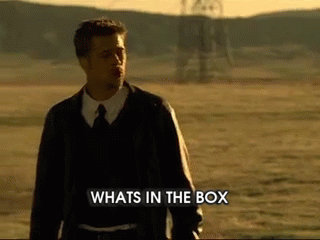The See No Evil article by Miriam Posner reminded me of my first few “adult” jobs right out of college. You see, when you’re an intern, apparently you can ask as many questions as you want, but as an employee, you’ll be reprimanded for peeking behind the curtain. I won’t mention where, but while working at a large-scale media company, I made the mistake of asking too many questions about “how the sauce is made.” The company, as many do, employs a modular system. I was only supposed to know the details of my own work and the tasks it entails. Therefore asking about the responsibilities of other departments or who makes certain decisions was seen as intrusive. I later understood that maybe I was not reprimanded because of my curiosity but because even people like my supervisor, who “should have known” the answers to these questions, was not privy to this information. Besides this incident, during a horrible New York City snowstorm, we were all stuck in the office because the one person who knew how to operate and had access to a particular database couldn’t come in. No one question why couldn’t someone else touch this program or at least manage to operate it enough to allow the rest of us to continue with our work. Since then, I have faced many” on a need to know ” jobs, but I always feel incomplete and as if I might not know who exactly am I servicing or how I fit into the larger “making” process.
“One doesn’t need to know what’s in the box, just where it needs to go. ” (Posner, See No Evil)
However, though I’m a huge proponent of transparency and, therefore, blockchain, I can’t help but think back to when I first learn how many Victoria Secret bras and HM t-shirts were made! Not everyone is ready to “assimilating a lot of information that companies have become very good at disavowing (Posner, See No Evil).” After catching up on the technology of surveillance and privacy in my Digital Pedagogy course, I can see how, as helpful and eye-opening this technology could be, it can also be super problematic. Just as we are employing tracking systems in consumer goods development, we are also tracking, more closely than ever, humans! Another problem that I can ascertain from this proposed technology is the increase in automation and AI taking over more of the handling process, displacing countless workers. I do share Jackson’s thoughts on repair (Rethinking Repair), and the blockchain technology seems to be a way to improve upon a system of accountability, tracking, and outdated infrastructure. However, when proposing improvements, we must also employ a level of care and engrossment (Bethany Nowviskie, Capacity Through Care), looking at each component and each group of people with great detail, subjectivity, and compassion.
Speaking of tracking, surveillance, and technology, Apple is set to implement airtags – a Bluetooth powered small tracking device that helps you find lost or misplaced items (probably other items as well). But thinking as DH scholar, how can this technology be socially useful? And how can it be misused? Is it being done with care?




